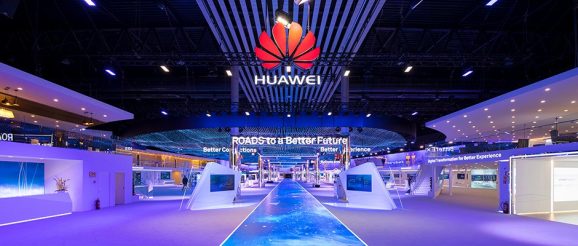Huawei demands innovation for greener world based on 5.5G

At its 19th annual Global Analyst Summit, communications technology giant Huawei has outlined the roadmap it will take to drive innovation and help build a low-carbon world, while committing to exploring ultra-high bandwidth, uplink spectrum reconstruction, ELAA-MM, green air interfaces and native intelligence to help operators build 1+1+N 5.5G networks and upgrade network capabilities.
As he revealed the steps that the company would take, Huawei rotating chairman Ken Hu said the drive for innovation would be based around three pillars: innovating nonstop and advancing the connectivity industry; creating new value for customers in digital transformation; and optimising power supply and consumption with digital technology to enable low-carbon development.
In terms of connectivity, Huawei said it would continue to drive the industry forward, announcing a vision to enable 10 Gbps connections everywhere with 5.5G and F5.5G, the next evolutions in wireless and fixed networks.
Together, these are designed to support a broader range of niche network requirements, including a more immersive experience in homes as well as the low latency and high reliability needed for industrial control scenarios. In terms of devices, Huawei said it will provide consumers with a user-centric intelligent experience in all aspects of their lives – what the company calls a seamless AI life experience – effectively accelerating the convergence of the physical and digital worlds.
Attempting to address digital transformation, the company said it was adapting its products and product portfolios to different industrial scenarios, pre-integrating and pre-verifying products to make digital transformation easier for its customers and partners. With Huawei Cloud as the foundation, Huawei aims to provide everything as a service, turning infrastructure, technology and expertise into cloud-based services, and making cloud migration easier for customers in different industries.
Huawei is also building integrated teams that focus on specific industries, bringing a specialised group of experts closer to customers’ business challenges and more tightly incorporating horizontal resources, i.e., products and capabilities from partners. The goal is to provide targeted digital transformation services for each industry and respond more rapidly to customer needs.
Huawei is also developing system-level low-carbon offerings for green ICT infrastructure, focusing on wireless base stations and datacentres.
Read more about Huawei
Drilling down into the world of 5G, the company announced that together with industry partners it would explore ultra-high bandwidth, uplink spectrum reconstruction, ELAA-MM, green air interfaces and native intelligence to help operators build 1+1+N’ 5.5G networks and upgrade network capabilities.
Huawei said that while 5G had opened the door to digitisation and intelligence, 5.5G networks would give it a further boost. To realise the converged interaction between the digital and physical worlds, Huawei proposed that mobile networks needed to provide a ubiquitous 10 Gbps experience while keeping the latency within milliseconds. It added that the vision for a digital, intelligent world required an information infrastructure that supports 100 billion connections, thereby enabling the digital twin and intelligent upgrades of all industries.
This meant, said the company, that the industry had to build a continuous 10 Gbps experience layer on top of the 5G Gbps foundation network. To ensure 100 billion connections, new capabilities, such as integrated communication and passive internet of things, must be overlaid onto the foundation network on demand. It is to this end that the 1+1+N 5.5G network would be introduced.
Going forward, and noting that spectrum was the cornerstone to development, Huawei said that mobile networks will have to depend on various frequency bands that vastly differ in capabilities to meet diverse service requirements.
It also said 5.5G networks could provide native intelligence to enable real-time sensing, analysis and prediction, and intelligent decision-making, and that with these capabilities, 5.5G networks will notably increase the efficiency of resource scheduling to guarantee diversified user experience.
